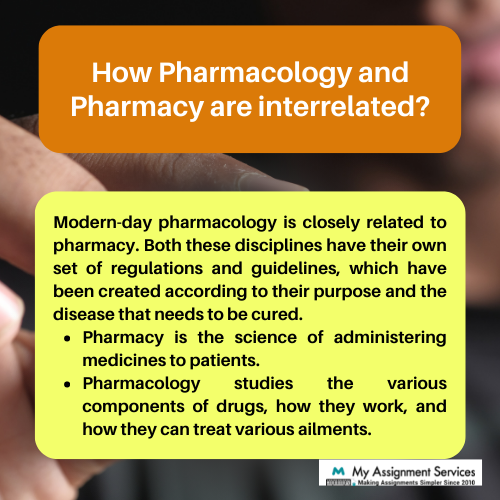
It has become increasingly important that surgical nurses, like other medical professionals, maintain a high level of knowledge and skills in pharmacology. Yes, many drugs can be safely used in surgery. However, surgical nurses must understand exactly how each drug works and the potential side effects and interactions with other medications.

Pharmacology is essential knowledge in surgical nursing. Pharmacology is the study of drugs, their effects, and their uses. It involves knowing how drugs work in the body and how they interact with each other.
The goal of pharmacology is to provide safe and effective medications for patients. Pharmacology is a sub-field of clinical pharmacy that deals with drug use, administration, and effects on humans. This includes drug interactions, side effects, dosage calculations, and drug interactions. The pharmacology of medicine relates to the way that it works in the body, and how it is absorbed and metabolized. The pharmacokinetics of a drug referred to its absorption, distribution, metabolism, and elimination.
The importance of pharmacology skills in surgical nursing cannot be overstated. To operate effectively as a surgical nurse, you need to have an in-depth understanding of different medications and treatments. Without this knowledge, you could be at risk of making errors with your patients and causing harm.
There has been a boom in the field of surgical nursing within the last decade. As a result, the demand for surgical nurses has increased significantly. Surgical nurses provide critical care to patients within the OR setting. The skills utilized in surgical nursing include physiology, pharmacology, critical thinking, and problem-solving.
Yes, pharmacology is a subset of pharmacy. It involves the study of drugs and their effects on the body. As a surgical nurse, you will need to understand how different medications work so that you can administer them safely and effectively. You also need to be familiar with different surgical procedures and know when certain drugs should or shouldn't be used in conjunction with one another.
The science of pharmacology has been around for centuries. The ancient Egyptians were one of the first civilizations to study and document the medicinal uses of plants and herbs. In 400 B.C., Hippocrates documented his observations on the use of drugs to treat ailments. He also theorized that four bodily senses of humour (blood, phlegm, black bile, and yellow bile) were responsible for disease states, forming the basis of Western medicine until the 19th century.
Pharmacology as a field of study has been around for centuries. It was first developed in ancient Greece by Hippocrates, who is considered the "father of medicine." He believed that illnesses were caused by imbalances in the four senses of humour: blood, yellow bile, black bile, and phlegm.
The basic concepts of pharmacology in nursing studies include drug administration, pharmacokinetics, and pharmacodynamics. Pharmacology is the study of how drugs work in the body, while pharmacokinetics focuses on how long they stay in your system.
These concepts of pharmacology include the following effects of drugs:
The receptor theory of pharmacology explains how drugs work in the body. It is based on the fact that drugs and other chemicals affect specific receptors in the body. If a drug doesn't bind to a receptor, it can't produce an effect.
Receptors are proteins embedded in cell membranes. When a drug binds to its receptor on the outside of a cell, this theory is based on the idea that drugs act on specific chemical receptors in the body. A receptor is a protein molecule located on the surface of a cell that binds to a drug and produces an effect.
This theory states that drugs act by interacting with receptors in the body. The body has different kinds of receptors, which have been identified as:
Enzymes: Enzymes are proteins that speed up chemical reactions in your body.
Ion Channels: Ion channels are proteins that control the flow of charged particles like sodium and potassium across cell membranes.
G-Protein Coupled Receptors: These receptors are found on the surface of cells and act as signalling molecules.
Ligand-Gated Ion Channels: These receptors are located in the cell membrane and control the flow of ions into and out of the cell.
Nuclear Receptors: These receptors are found inside the cell and control gene expression.
Cell Membrane Transporters: These proteins move molecules across cell membranes, either into or out of a cell.
Absorption is the process by which a drug moves from the site of administration to the bloodstream.
Distribution is the movement of a drug within the body to reach its target tissue.
Elimination is how a drug leaves the body after it has been used. The process of getting rid of drugs in our bodies can be broken down into two categories:
Pharmacokinetics is the study of how a drug behaves in our bodies. Pharmacokinetics can be broken down into three phases: absorption, distribution, and elimination. The first step in pharmacokinetics is absorption, which is how a drug moves from where it's administered to the bloodstream. After that, distribution takes place as the drug travels around your body to reach its target tissue. Finally, elimination occurs when the drug leaves your body after use.
Drug metabolism is the process of how our bodies break down drugs. We have a variety of enzymes in our bodies that help us metabolize drugs, which are called "metabolic enzymes". These enzymes help us eliminate drugs from our system by either breaking them down into other chemicals or by using them as building blocks for new compounds.
In other words, drug metabolism is the process of breaking down drugs into other chemicals, which can sometimes lead to adverse reactions. One way that your body metabolizes drugs is through enzymes, which are proteins that speed up chemical reactions and help your body break down certain compounds. These enzymes can be found in many different organs in your body, including the liver and kidneys.
Renal elimination is one of the two main ways that the body eliminates drugs. Renal elimination involves the kidneys, which filter your blood and remove certain substances from it. This process can occur in two ways: glomerular filtration or tubular secretion. In both cases, a drug enters the kidney's capillaries and then passes through them into the urine.
The kidneys are responsible for filtering waste products from your blood. When they do this, they also filter out certain drugs that have entered the body through ingestion or injection. For example, if you take an opioid medication like morphine, it will be excreted by your kidneys within hours of being ingested.

Pharmacology assignments are not the easiest types of assignments. It requires scholars to have expertise and understanding of multiple sorts to complete the assignments. That's why students seek pharmacology homework help from My Assignment Services. The subject experts at My Assignment Services are well-versed in such pharmacological assignments and help the students get theirs done. The experts not only provide pharmacology homework assistance to scholars but also help them score excellent marks. So, what are you waiting for? Get help from My Assignment Services now!

Hi! I am a passionate writer with 3 years of experience in academic writing and over 2 years of experience as a professional blogger. I aim to provide academic solutions which add to the grades of the students as well as to their learning. I’m working with My Assignment Services since 3 years, during which I have always worked for the benefit of the students by providing them quality work.
1,212,718Orders
4.9/5Rating
5,063Experts
Turnitin Report
$10.00Proofreading and Editing
$9.00Per PageConsultation with Expert
$35.00Per HourLive Session 1-on-1
$40.00Per 30 min.Quality Check
$25.00Total
FreeGet
500 Words Free
on your assignment today
Get
500 Words Free
on your assignment today
Trending now
The Student Corner
Subscribe to get updates, offers and assignment tips right in your inbox.
Popular Posts
Popular Posts
Doing your Assignment with our samples is simple, take Expert assistance to ensure HD Grades. Here you Go....
Speak directly with a qualified subject expert.
Get clarity on your assignment, structure, and next steps.
In this free session, you can:
Loved reading this Blog? Share your valuable thoughts in the comment section.
Add comment